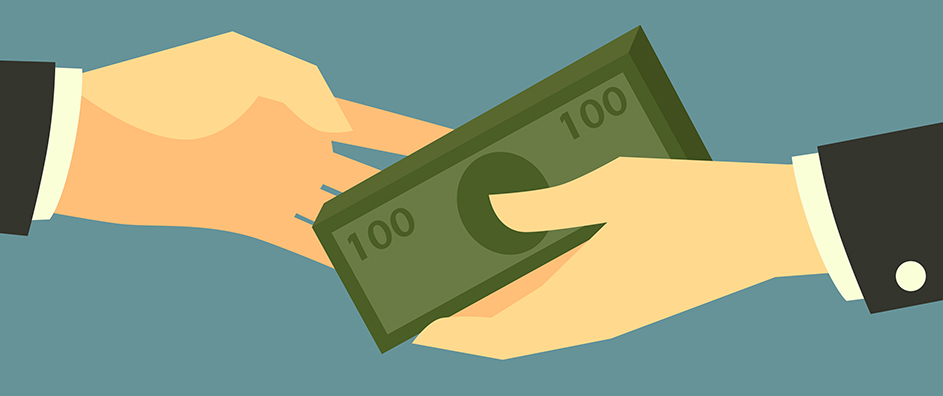The intricate relationship between economics and morality has long been the subject of scrutiny, particularly within the framework of the Bahá’í teachings. At the core of this analysis is the pressing need to address and eradicate corruption within our economic systems. Indeed, the phenomenon of corruption is not merely an aberration; it is a profound indicator of systemic failures and moral discrepancies. The Bahá’í teachings provide a clarion call to elevate our economic practices, fostering systems that champion justice, equity, and unity. This article seeks to elucidate the fundamental principles underlying the Bahá’í perspective on rooting out corruption in economic institutions.
Understanding Corruption in Economic Systems
Corruption manifests in myriad forms, ranging from bribery and embezzlement to more subtle practices such as favoritism and undue influence. These behaviors stem from a fundamental disregard for ethical standards and the welfare of the collective. The Bahá’í teachings emphasize that the root cause of such corruption lies in the disconnection of individuals from the principles of justice and unity. Economic systems, therefore, reflect the moral caliber of the societies that configure them.
The Moral Imperative of Economic Justice
Economics, in its essence, is not merely a statistical endeavor; it is a moral pursuit. Bahá’í philosophy posits that the economic well-being of individuals cannot be divorced from considerations of justice and equity. This perspective renders it imperative to cultivate a spirit of altruism and collective responsibility within economic practices. By acknowledging that mankind is inherently interconnected, we can begin to dismantle the barriers that perpetuate economic injustice and corruption.
Unity and Diversity: A Catalyst for Reform
Integral to the Bahá’í vision is the premise of unity amid diversity. The economic realm thrives when various talents and capabilities are harnessed toward a common goal of prosperity for all. The accustomed hierarchies often entrenched in economic systems can breed corruption, as they incentivize self-serving behaviors over collective advancement. The Bahá’í teachings advocate for the establishment of collaborative structures that leverage diverse skill sets while underpinning the principles of fairness and cooperation.
Education as a Tool for Transformation
Within the Bahá’í framework, education is not merely a means of acquiring knowledge; it is a transformative force that cultivates moral and ethical sensibilities. By prioritizing education that not only imparts skills but also instills values of integrity and service, societies can begin to nurture a generation that consciously rejects corrupt practices. Economic education should encompass not only technical expertise but also the ethical ramifications of economic actions and policies. Informed citizens are empowered to advocate for their rights while holding economic leaders accountable.
Implementing Systematic Reforms
To effectively root out corruption, a systemic overhaul is essential. This involves the integration of principles of transparency, accountability, and participatory governance within economic institutions. The Bahá’í teachings stress that economic policies must be designed with the aim of uplifting the marginalized and ensuring equitable distribution of resources. Moreover, these reforms should be participatory, offering all segments of society—especially the disenfranchised—an opportunity to engage meaningfully in economic decision-making processes.
The Role of Ethical Leadership
Leadership plays a pivotal role in the health of economic systems. According to Bahá’í principles, true leadership is predicated on service rather than dominion. Ethical leaders are expected to exemplify virtues of integrity, humility, and accountability. They must cultivate an environment where ethical conduct is the norm rather than the exception. The character and actions of leaders set the tone for the wider economic landscape, influencing public trust and the systemic resistance to corruption.
Integrating Spiritual Principles into Economics
The Bahá’í perspective asserts that spiritual principles must seep into economic thought and practice. This entails recognizing the innate dignity of every human being and the moral implications of economic choices. The synthesis of spiritual and economic principles can foster a society where profits do not overshadow human dignity, and where economic endeavors are rooted in the betterment of humanity. This holistic approach paves the way for sustainable economic practices that prioritize wellbeing over mere financial gain.
The Interconnection of Global Economics
Globalization has rendered economic systems more interdependent. The implications of corruption in one economy can reverberate across nations, further complicating efforts to establish integrity. The Bahá’í teachings advocate for global collaboration in addressing corruption. This entails fostering international cooperation and creating frameworks for ethical standards that transcend borders. By embracing our collective humanity and shared fate, nations can collectively mitigate the effects of corruption and inequality.
Conclusion: A Vision for an Elevated Economic Paradigm
The journey toward eradicating corruption from economic systems is both daunting and essential. It requires a radical rethinking of our values and practices, imbued with the teachings that underscore the importance of justice, unity, and moral governance. The Bahá’í vision provides a roadmap that calls for not only individual integrity but also systemic transformation reflective of our ethical commitments. By embracing these teachings, we can take strides toward crafting an economic paradigm that upholds justice for all, ultimately nurturing a world where prosperity is equitably shared and corruption is vanquished.
